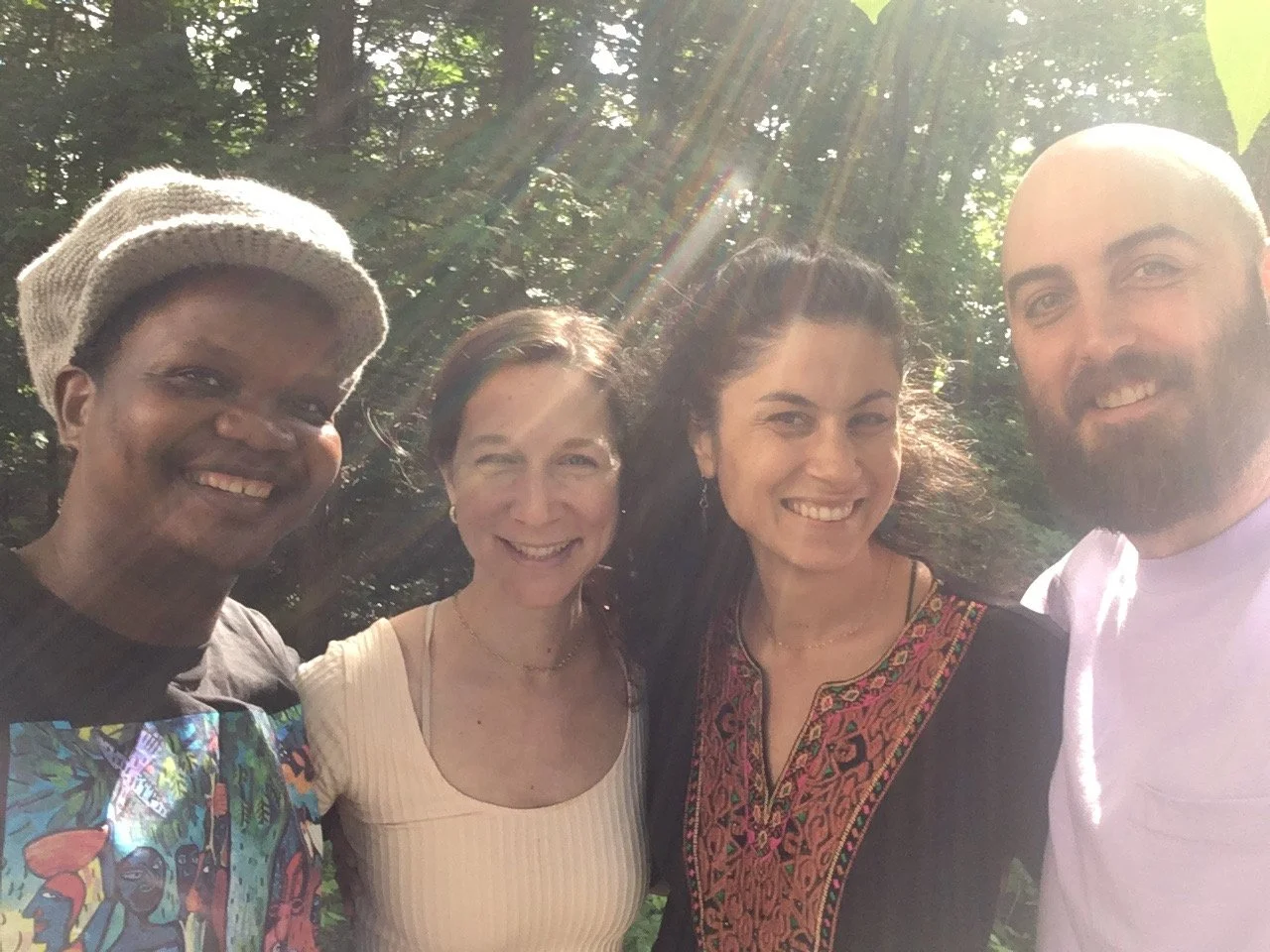Art of Hosting: Wasan Island
Toronto’s Centre for Social Innovation reached out to Colab to lead a 4 day Art of Hosting (AoH) Training for their staff, and nonprofit and private sector leaders within their network. We invited our friends Rehana Tejpar and Moyo Rainos Mutamba (from Bloom Consulting) to co-design and co-facilitate this training with us. It was a powerful and deeply meaningful 4 days spent on Wasan Island, in the heart of the Muskoka Lakes Ontario.
The Art of Hosting approach to collaboration is foundational to all of our work, as Colab’s founders Sophia Horwitz and Greg Woolner have participated in, supported, and led over a dozen AoH trainings in Canada, US, and Europe.
“The time on Wasan island was an unforgettable and transformative experience. The four days spent diving into the Art of Hosting was not only informative but deeply meaningful. I came away with practical tools for leading collaboration, inclusion, and co-creation in my work, but also with a renewed sense of purpose and energy. The approach made it clear how vital these practices are. This training has changed how I think about collaboration, leadership, and creating lasting impact. Your facilitation created an experience that inspired real change in me—thank you!!" - Participant
What is the Art of Hosting?
The Art of Hosting (AoH) is a set of principles, tools, and practices designed to facilitate group dialogue and collective intelligence, especially in complex and challenging situations. It’s about bringing people together to collaboratively address issues, find solutions, and co-create action plans in a participatory, inclusive, and creative way.
1. Hosting Conversations That Matter:
AoH is grounded in the idea that conversations are powerful tools for change. Instead of traditional, hierarchical meeting structures, AoH encourages open, meaningful dialogues where all voices are heard and collective wisdom is tapped.
The Art of Hosting is widely used in community engagement, organizational development, social innovation, and in contexts requiring deep collaboration and participatory leadership. It’s useful for dealing with complex issues that don’t have simple, straightforward solutions, such as sustainability initiatives, community development, policy-making, and systems change efforts.
AoH aims to create a culture of collaboration where people are empowered to contribute meaningfully, and where their collective intelligence can be harnessed to create lasting solutions.
2. Core Practices and Methods:
The AoH toolbox includes several interactive, dialogue-based methods, each suited to different types of conversations or purposes. Some of the most common ones are:
World Café: Small group conversations with participants moving between tables, building on ideas to generate deeper insights.
Open Space Technology: Participants set the agenda themselves based on what they are passionate about, leading to self-organized discussions on relevant topics.
Circle Practice: A method for creating trust and inclusivity by ensuring that everyone has an equal voice.
Appreciative Inquiry: A positive, strengths-based approach to exploring what works well in a system and how to build on it.
ProAction Café: A space for developing concrete ideas, where participants move between tables to ask questions that help others refine their projects.
3. Key Principles:
Participation and inclusion: Everyone's voice matters, and diversity is seen as an asset for creating innovative solutions.
Co-creation: The emphasis is on collective wisdom, inviting people to co-create solutions or outcomes together.
Adaptability: The approach is flexible, adjusting to the needs and dynamics of the group or context.
Self-organization: The structure is light, and participants are encouraged to take responsibility for what they care about.
4. Mindset and Philosophy:
Hosting, not facilitating: While facilitating focuses on guiding the group through a process, hosting is more about holding space for the group to self-organize, trusting in the collective capacity to find its way forward.
Leading from behind: A host leads by supporting the group in navigating complexity, creating an environment where innovation and leadership can emerge naturally.







